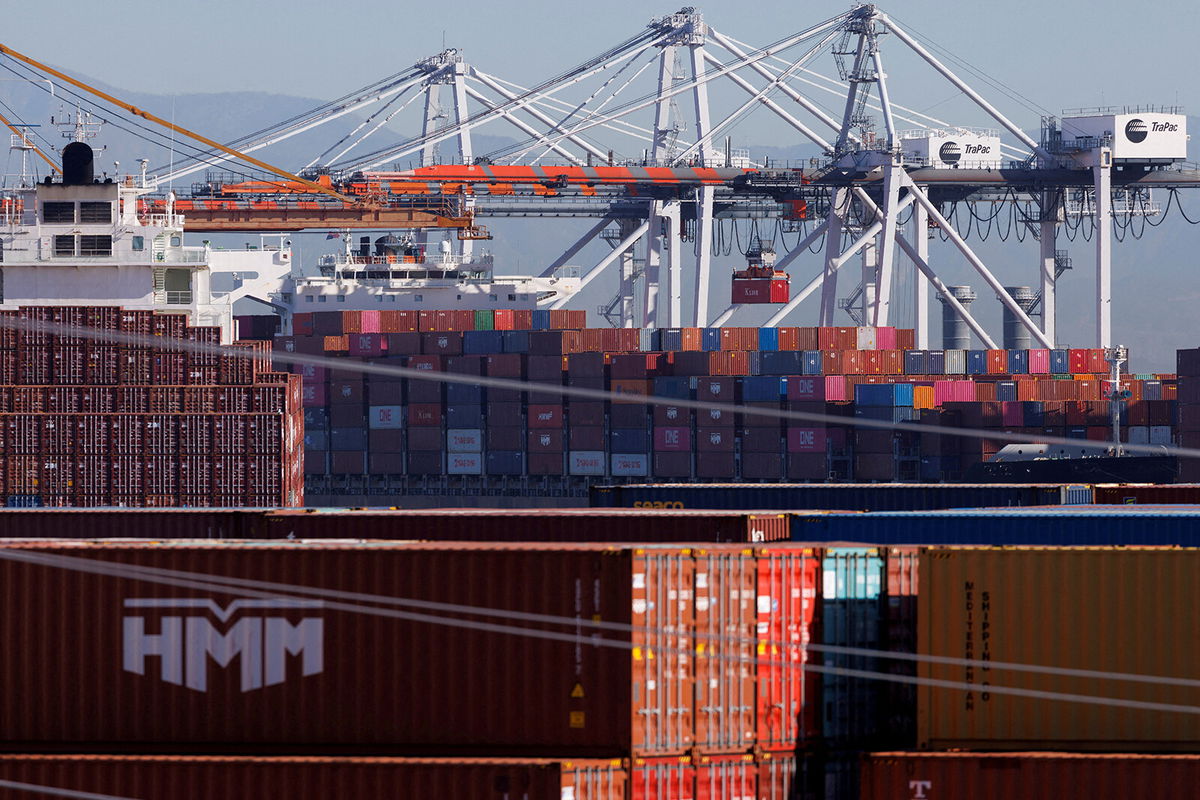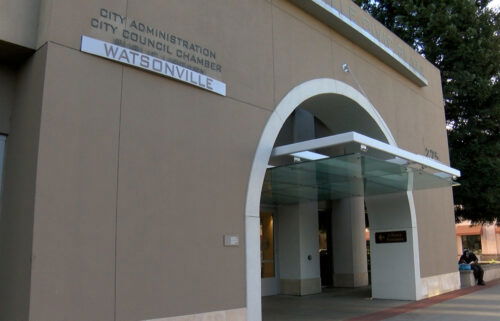Already strained supply chain at risk in ongoing port labor talks

By Chris Isidore, CNN Business
More tieups at West Coast ports are just about the last thing the US economy needs right now.
Delays caused by a flood of cargo last year continue to create widespread shortages of goods throughout the economy and added to inflationary pressures.
But a current round of labor talks between management at the 29 ports up and down the coast and the International Longshore and Warehouse Union whose members load and unload the ships has businesses that depend on the ports very, very worried.
“I’m extremely nervous. I’ve seen this movie before,” said Isaac Larian, CEO of toy maker MGA Entertainment, best known for its Bratz dolls. “There’s no real alternative to using these ports. I’m praying twice a day, rather than once.”
The contract that covers about 16,000 members of the International Longshore and Warehouse Union working at the ports is due to expire July 1. At this point, it’s unlikely a deal will be reached before that date.
Management and the union issued a statement last week trying to assure businesses that even though the two sides don’t expect to reach a new deal before next month, they’re ready and willing to keep working under terms of the existing contract.
“Neither party is preparing for a strike or a lockout, contrary to speculation in news reports,” said the joint statement. “The parties remain focused on and committed to reaching an agreement.”
But experts say companies that depend on the ports have every reason to be worried.
“There’s definitely nervousness, and there should be,” said Peter Tirschwell, vice president of S&P Global Intelligence, who tracks maritime and port issues. He pointed out that President Joe Biden took time out during a trip to Los Angeles earlier this month to meet with the heads of both the ILWU and the Pacific Maritime Association (PMA), the group that represents the ship lines and terminal operators in the labor talks.
“The perception of risk is so great that the president of the United States felt he needed to meet and knock heads together,” said Tirschwell. “More problems at the port is the last thing he needs.”
A history of problems associated with labor talks
The PMA would not comment on the state of the talks beyond the joint statement it issued with the union. The ILWU did not respond to a request for comment.
Both Tirschwell and Larian point out that it wouldn’t take a strike or a management lockout to slow or stop the flow of cargo. In the past, union members have slowed cargo simply by following strictly the terms of their existing contact, rather than trying to work most effectively.
“Maybe they won’t go on strike, but they can slow down everything,” said Larian, the toymaker CEO.
“A strike is very unlikely. A lockout is very unlikely,” said Tirschwell. “But there’s a definite possibility of an industrial action that disrupts the flow of cargo. That’s what happened for six months in 2014 and 2015.”
The history of talks between the two sides is another thing causing nervousness.
“It’s no secret that past contract talks between PMA and the ILWU have not always gone smoothly. That’s why I’ve heard from worried importers and exporters across our nation,” said Jim McKenna, the CEO of PMA in a recent recorded public statement on its web site. “I’ve assured them, and I’ll reiterate now, that PMA’s commitment is to reach a new contract with the ILWU without disruption.”
This is prime time during the shipping season for companies that want to import goods they can sell during the year-end holiday period. Larian said he has shifted about 10% of his shipments to East Coast ports, but there are delays and higher costs involved in such a shift.
His best hope is that the union leadership won’t want to cause problems for Biden, who is generally seen as the greatest friend of union labor ever to sit in the Oval Office.
“If they slow down the cargo, it will hurt the economy, hurt Joe Biden,” Larian said. “They’re not dumb. They want to keep their biggest supporters in office.”
Automation is key issue
The PMA said the average wages for ILWU members stands at $194,350.
But the shipping lines and terminal operators are all making huge profits thanks to a surge in cargo and very high rates.
Despite tie-ups at the ports last year that caused some ships to wait weeks to unload their cargo, West Coast ports handled the equivalent of 17.3 million 20-foot containers full of freight last year, a record and up 6% from the pre-pandemic year of 2019. And cargo is up further this year.
But the ports say they need more automation to handle the increasing amount of cargo.
“We have seen…over the last 18 months that automated terminals are the most effective in handling historic volumes, while also expanding work opportunities for ILWU members,” said PMA’s McKenna in his recorded comments. The association’s stats show union employment at the ports is up by more 1,000 jobs, or 7%, since 2008, when the union agreed to greater automation amid the Great Recession’s economic downturn.
With shipping lines and terminals making huge profits from the current flood of cargo, the union is not inclined to give the PMA the greater use of automation that it seeks.
“Automation has gone from an issue that they conceded to employers in 2008 to an issue they militantly oppose,” said Tirschwell.
Will rank and file agree to any deal reached?
And even if union leadership and the PMA reach a deal both can live with, will rank-and-file membership agree to such an agreement? Some deals reached between union and management negotiators at other employers have failed because union members themselves voted no.
In October, 90% of the United Auto Workers union members at farm and construction equipment maker John Deere voted down a lucrative deal that included an $8,500 signing bonus, raises of 20% during the life of the six year contract and a cost of living adjustment provision to protect them from rising prices. The members went on strike for five weeks and rejected a second tentative labor deal before finally voting in favor of a third deal and returning to work.
A similar scenario could play out in the port labor talks, said Todd Vachon, an assistant professor and director of labor education at Rutgers University. He said many rank and file are not willing to accept deals they agreed to in the past.
“They’re feeling pressure from inflation. And they’re very accurately aware of the power they have in the economy,” he said.
So even if union leadership wants to do their friends in the Biden administration solid and reach a deal without disruptions, Vachon added, “the tricky part is selling that to the members.”
The-CNN-Wire
™ & © 2022 Cable News Network, Inc., a WarnerMedia Company. All rights reserved.

